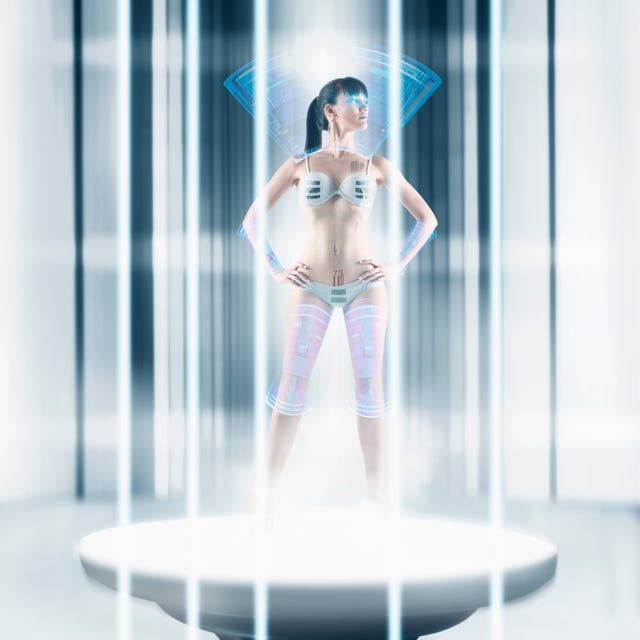
Colin Anderson Productions pty ltdGetty Images
If you described your car as a smart device, everyone but Elon Musk might look at you askance. But the modern car really is one, points out Ivan Poupyrev: “It has internet, a map, artificial intelligence, and people you can talk to.” Poupyrev, Google’s director of Engineering, Advanced Technology and Products and the mastermind behind its Jacquard project, is shooting for the same seamless integration with the wearable devices he’s helping to make a reality. The aptly named initiative weaves technology into everyday fashion items, aiming not to manufacture an ostentatious “wearable tech” device but “to make technology disappear, so that people live their normal lives, [with] technology becoming something in the background.”
Poupyrev was inspired to create Jacquard after thinking about how stashing your smartphone in your jacket pocket turns the garment, in a sense, into a piece of technology. “So why doesn’t the jacket do more?” he asked himself. In his hands, clothes become overachievers: The cuffs of a Levi’s trucker jacket have call-answering capabilities; the strap on a Saint Laurent backpack can drop a Google Maps location pin. (In June, Google Cloud and LVMH announced an AI and cloud-based partnership focused on LVMH’s maisons, presaging more fashion-tech innovation ahead.)
The collaborations don’t stop at designer labels. Earlier this year, the tech giant worked with the residents of Champions Place, a living community for young adults with disabilities, to get feedback on how smart clothing—such as jackets that allow you to make emergency calls—could address their needs.
Poupyrev keeps one question at the forefront: “How can technology adapt to us, instead of us adapting to technology?” For him, design is paramount. “Google is not making its own backpack or clothing or jacket,” he notes. For the designers they work with, technology is “an ingredient. We take a backseat and let creators be the decision makers. We try to co-create with them, rather than dictate what should be done.”
This article appears in the September 2021 issue of ELLE.
This content is created and maintained by a third party, and imported onto this page to help users provide their email addresses. You may be able to find more information about this and similar content at piano.io
